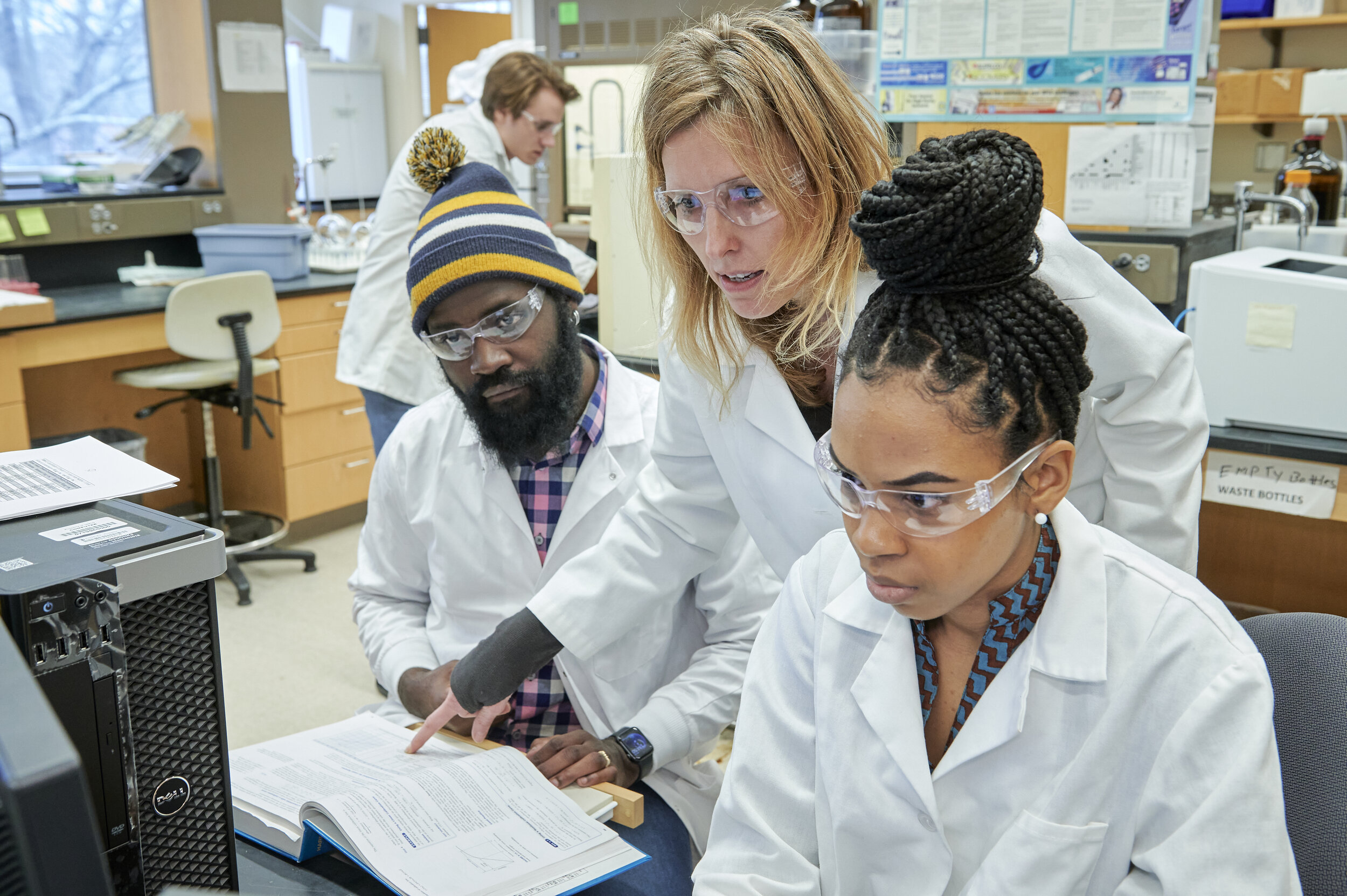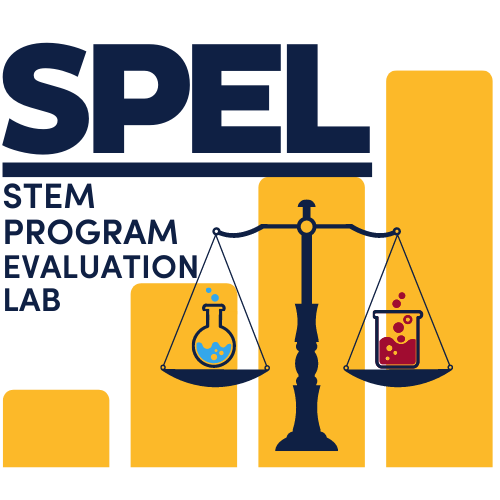
What is SPEL?
Each year the United States government commits millions of dollars to fund innovative Science, Technology, Engineering and Mathematics (STEM) research and education programs. Often, when these initiatives are funded, someone is standing alongside the scientists evaluating their work. That’s where SPEL comes in. We train graduate and undergraduate students and evaluate/research STEM education projects. Students receive training in the Values-Engaged Educative (VEE) evaluation approach, which defines high-quality STEM educational programming as that which successfully integrates pioneering scientific content, robust instructional pedagogy, and sensitivity to diversity, equity, and inclusion (DEI). Undergraduate students receive training in qualitative and quantitative research and other technical skills, evaluator competencies, co-authoring evaluation reports, and presenting to funders and at professional conferences. Graduate students in return, gain valuable supervisory experience to complement their applied research and evaluation experiences and coursework.
SPEL is unique in that it is modeled after research laboratories that are common in Science, Technology, Engineering, and Mathematics (STEM) fields. Our design includes co-directorship by two faculty members, integration of graduate and undergraduate students, and funding through sponsored research and evaluation contracts.

